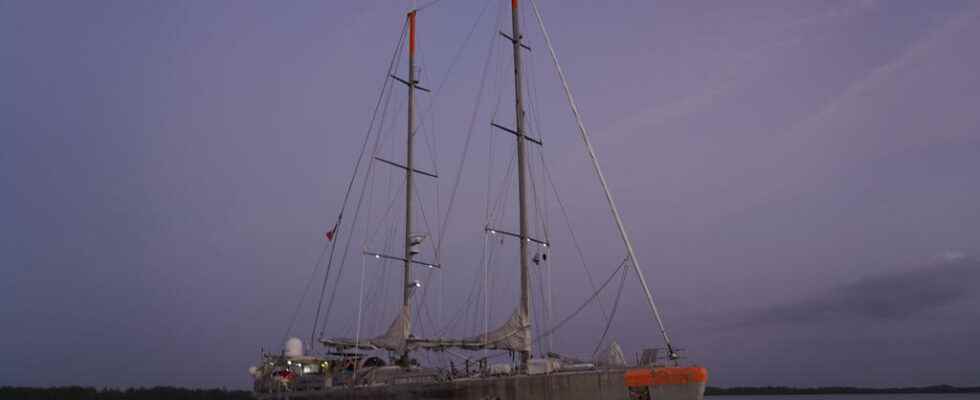From September 2 to 11, Senegal is the last stage of the Microbiomes mission of the Tara Océan foundation’s laboratory boat. For the first time, scientists have taken samples along the West African coast to better understand the microbiome of this part of the Atlantic, and its sensitivity to climate change and pollution. Five months in West Africa – with stops in six countries – as the schooner returns to France on October 15.
With our correspondent in Dakar, Thea Olivier
All sails out, the schooner Tara is sailing off Dakar, with French and Senegalese scientists on board returning from two weeks of sampling marine microbiomes – those microorganisms in the ocean that are the first links in the food chain, essential to capture carbon emissions.
This step marks the end of a five-month mission along the West African coast, explains, satisfied, Samuel Chaffron researcher at the CNRS. “Gloyallyhe reports, the objectives have been achieved. It was to sample the microbiome, so that was done, another objective was to sample and collect the plastic in the sea and in the rivers, and that was done too. The Congo River could not be sampled, but we will still have samples from the Gambia river, and the Casamance River. Overall, it’s a successful mission. »
In total, nearly 40,000 samples will have been taken in two years, including 10,000 between Cape Town and Dakar. A particularly interesting region, according to Romain Troublé, director of the Tara Océan foundation. “ We really measured the wealth, it’s incrediblehe rejoices. When we are at sea, we put nets for an hour in the sea to fill them. In these particular areas, such as Senegal or Namibia for example, in five minutes, the net is full, there is so much biodiversity and biomass in the ocean. »
But the scientific assessment will still take several years to be drawn up, while the samples must still be sent to laboratories on land to be analyzed and interpreted.
► See also: The Tara Ocean Foundation presents its unique laboratory to study the Arctic
